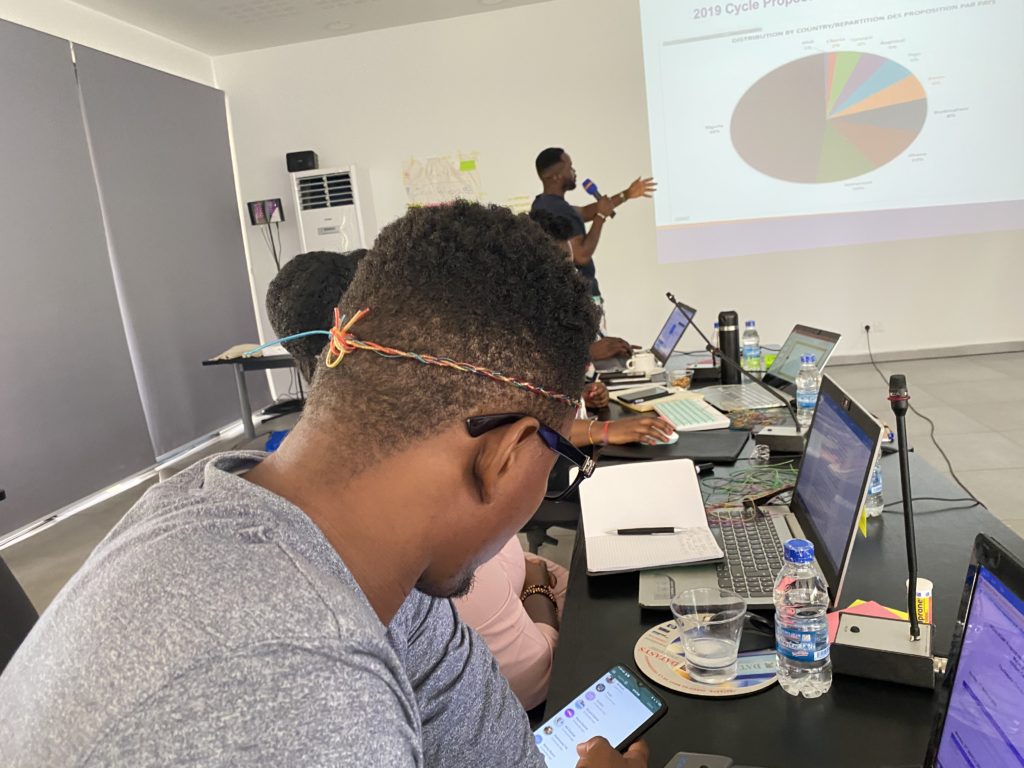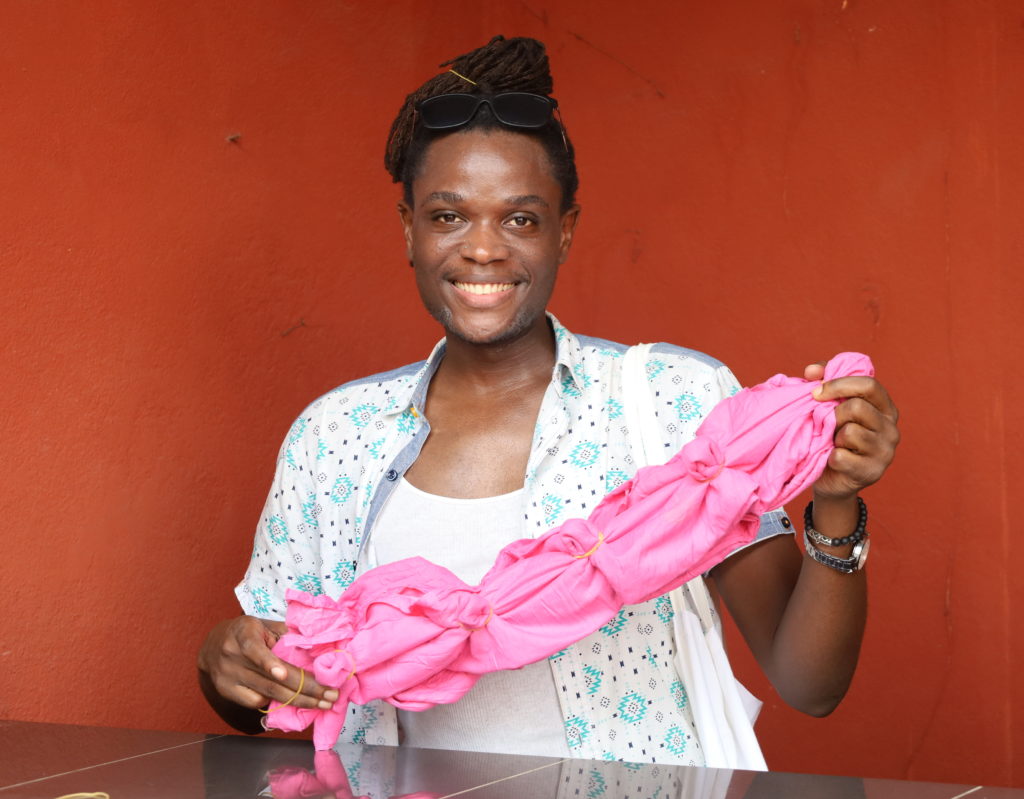
Flexibility, transparency, accountability and feminism are among the core values of ISDAO. To uphold these values and to be a fund that learns and evolves, we recently - for the first time - went public with the identities of the members of our Activist Grant Making Panel (AGMP). Participatory grantmaking is at the heart of our mission to resource and support the LGBTQI movement in West Africa, and the AGMP is an integral part of this work.
The Activist Grantmaking Panel is an autonomous decision-making body within ISDAO whose mandate is to review and approve proposals for funding, while ensuring fairness and transparency in the process. The panel is made up of volunteer LGBTQI activists from across West Africa. In addition to reflecting diversity in sexual orientation, gender identity and sex characteristics, the Panel reflects diverse personal, institutional, social and political experiences within the West African LGBTQI movement. The AGMP is autonomous in its decision-making process and sets its own rules, guidelines and decision-making strategies in alignment with ISDAO's principles and values. AGMP members have a two-year mandate, renewable once, and are subject to an agreed code of conduct.
ISDAO's inaugural AGMP made its first review and decision in 2019 and was the first participatory LGBTQI grantmaking panel in the region at the time. Drawing on the experience of other activist funds, the committee that designed the inaugural call for proposals decided to adopt the same approach in that the panel would be anonymous, based on the rationale hat keeping its identity anonymous would help reduce or eliminate any outside influence or conflict of interest that might affect the transparency of the decision-making process. The panel members agreed to keep this anonymity on the basis of trust and a confidentiality agreement which everyone signed. However, in practice, despite the efforts and measures taken, this approach has not been successful, as anonymity has been broken repeatedly over the years. This has led some within the movement to question the integrity and transparency of the grantmaking panel and its decision-making process.
In 2022, with the support of an external consultant, we commissioned an evaluation of our grantmaking process, including our AGMP and its operations, using data from internal and external interviews, focus groups, and online surveys. TAFFIYA, the evaluation report of this grantmaking process has just been published. One of the main recommendations of this evaluation report concerned the anonymity of the AGMP, with several AGMP members and movement players suggesting that the identity of AGMP members should be made public. This issue has also been raised in the past internally at ISDAO, in partner forums, but also among AGMP members during their decision-making meetings.
By this time, the first AGMP had completed its mandate, and a new grantmaking panel was in place. We brought the issue of anonymity to the panel for a decision. The panel discussed and weighed a number of factors, such as personal security, prevailing trends in participatory grantmaking and the impact of publishing one's identity in terms of accountability. The AGMP also looked at information from a few other participatory funders who publish information about their panels. In the end, the AGMP decided to make its identity public in order to demystify the grantmaking process for the movement.
For us at ISDAO, participatory grantmaking is about transferring the power of funding decisions to the movement, to activists, and the decision to make AGMP more transparent is a further step in this direction and one we wholeheartedly support.
The involvement and leadership of the region's activists is part of our strength and DNA as an activist-led fund, and we are delighted to publicly share more information about the community of committed activists who help ISDAO achieve its core mission.
How does AGMP make its decisions?
Each year, during the month of October, ISDAO issues a call for proposals for our regional grant for a period of 4 weeks. At the close of the application window, proposals received are reviewed by members of the ISDAO program team to ensure that they meet the eligibility criteria set out in the call for proposals. The AGMP evaluates eligible proposals on the basis of criteria and priorities defined collectively by the AGMP. These priorities are based on the collective knowledge of AGMP and on a contextual analysis of the movement in the various countries and in the West African region.
The AGMP evaluates proposals in several stages, starting with a virtual review, followed by a face-to-face meeting. This process ensures that all proposals are analyzed and scored by at least three panel members, before voting anonymously for a cut-off score for proposals that proceed to the in-person review meeting. A robust conflict of interest procedure is also in place to ensure that proposals are evaluated without any form of bias on the part of reviewers. Although ISDAO staff remain present throughout the virtual review and the face-to-face decision-making meeting to provide logistical and technical support, they do not participate in the decision-making process.
During the face-to-face reviews, the AGMP discusses and shares their knowledge of current trends in the sub-regional movement, including needs, challenges, opportunities and successes. This helps them decide on their funding priorities for the year, as well as the values, principles, and guidelines for the decision-making process. Proposals are discussed one by one in plenary session before being put to an anonymous vote, with those receiving a majority of positive votes being pre-approved. If the total amount of pre-approved proposals exceeds the budget available for the grant cycle, the AGMP then decides which proposals will be retained, per the priorities and procedures it has established. Although proposals are pre-approved at AGMP meetings, grant contracts are not signed until ISDAO has completed its due diligence processes.
ISDAO's flexible and participatory approach to grantmaking has had and continues to have a positive impact on the West African LGBTQI movement, especially given the gaps in funding that the movement still faces. Groups and organizations defending LGBTQI rights have improved access to flexible resources to strengthen their organizational structures and meet the specific needs of the communities they serve. We hope that our grantmaking practices and structure will continue to evolve to enable greater accountability and transparency, so that we can continue to put activists at the heart, creating even greater impact for the movement.
Written by Daniel Adams and Phidelia Imiegha

